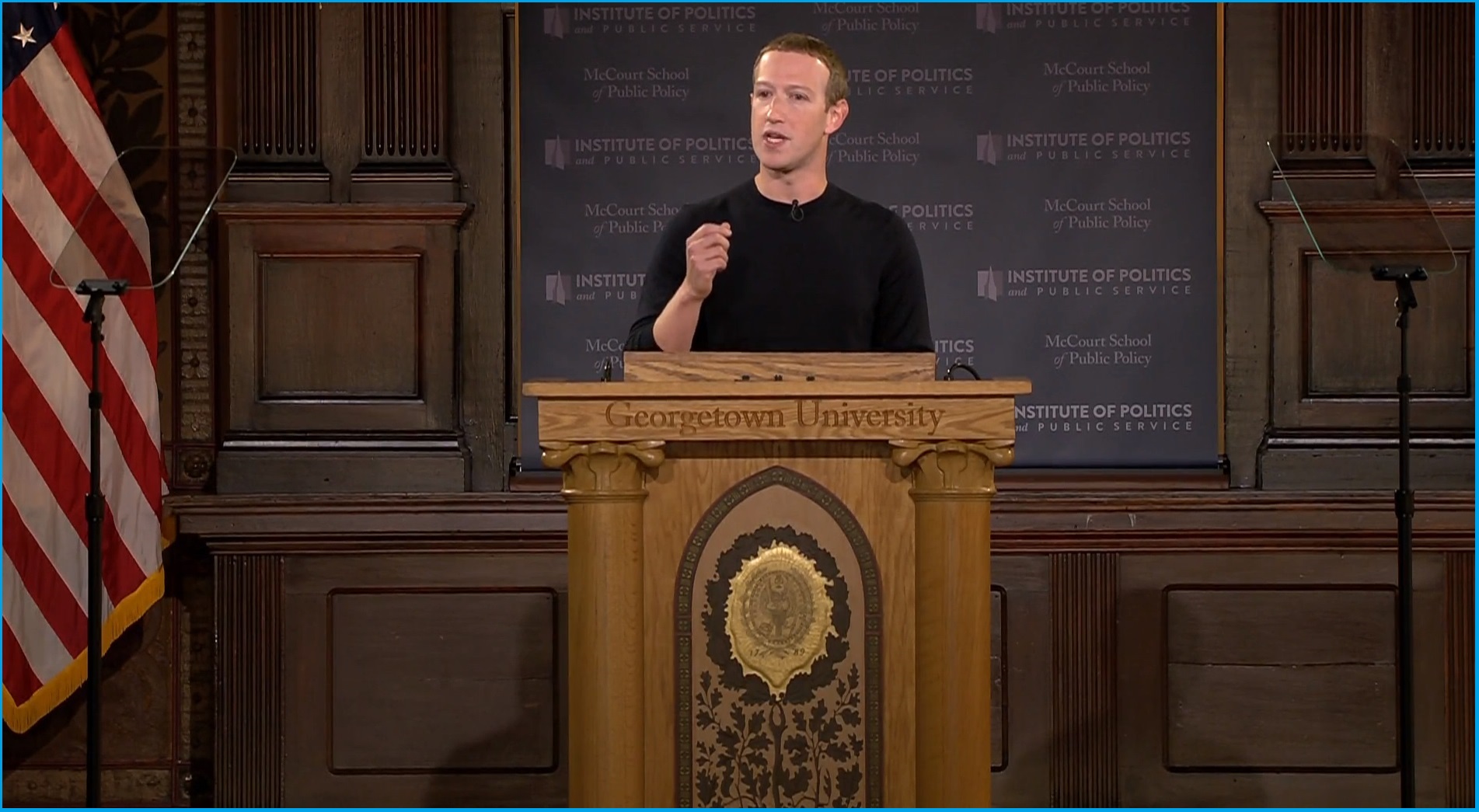Mark Zuckerberg has doubled down on his commitment to “free expression”, arguing that Facebook isn’t responsible for preventing the spread of misinformation on the platform.
Amid heightened debate over Facebook’s role in fact-checking political advertisements and cracking down on hate speech, Zuckerberg delivered a near 40-minute speech at Georgetown University espousing the importance of “free expression” on the platform and warning against “potentially cracking down too much”.
In the speech, Zuckerberg aimed to position Facebook as a bastion of free expression, railing against growing calls for the platform to crack down on the spread of misinformation and hate speech, and even appeared to argue that the Iraq War may have been prevented had Facebook been around at the time.
Facebook has been widely criticised for shirking its responsibilities in preventing politicians from spreading misinformation in advertisements on the platform, with US presidential candidate Elizabeth Warren labelling the platform a “disinformation-for-profit machine”.
The social media giant has previously argued that it does not have a responsibility to “referee” political debates or ads, and that posts containing lies will remain on the platform as they are still newsworthy.
Zuckerberg attempted to argue for the importance of freedom of expression, saying that Facebook is merely a platform rather than a publisher.
“People having the power to express themselves at scale as a new kind of force in the world - a fifth estate alongside the other power structures of society,” Zuckerberg said in the speech.
“I’m here today because I believe we must continue to stand for free expression.”
He again argued that it isn’t the role of the big tech platforms to call out misinformation or outright lies.
“While I certainly worry about an erosion of truth, I don’t think most people want to live in a world where you can only post things that tech companies judged to be 100 percent true,” Zuckerberg said.
“Given the sensitivity around political ads, I’ve considered whether we should stop allowing them altogether. But political ads are an important part of voice, especially for local candidates, up-and-coming challengers and advocacy groups that may not get much media attention otherwise.”
“Banning political ads favours incumbents and whoever the media covers.”
Zuckerberg’s comments were swiftly rebuked by a spokesperson for US presidential candidate Joe Biden.
“Zuckerberg attempted to use the Constitution as a shield for his company’s bottom line, and his choice to cloak Facebook’s policy in a feigned concern for free expression demonstrates how unprepared his company is for this unique moment in our history and how little it has learned over the past few years,” the spokesperson said.
Political ads on Facebook have been hotly debated recently after US president Donald Trump ran a video falsely accusing Biden of committing corrupt acts in the Ukraine. Television networks CNN and NBCU refused to show the ad, but Facebook did not take it down.
This has been widely criticised, with Elizabeth Warren herself posting a deliberately false ad on the platform to prove her point.
“Facebook changed their ads policy to allow politicians to run ads with known lies - explicitly turning the platform into a disinformation-for-profit machine,” Warren said.
In the speech, Zuckerberg also attempted to rewrite the origin story of Facebook around freedom of speech and the Iraq War.
“I remember feeling that if more people had a voice to share their experiences, then maybe it could have gone differently. Those early years shaped my belief that giving everyone a voice empowers the powerless and pushes society to be better over time,” he said.
Facebook, originally named ‘The Facebook’, was set up for male students to rate the attractiveness of females on campus.










